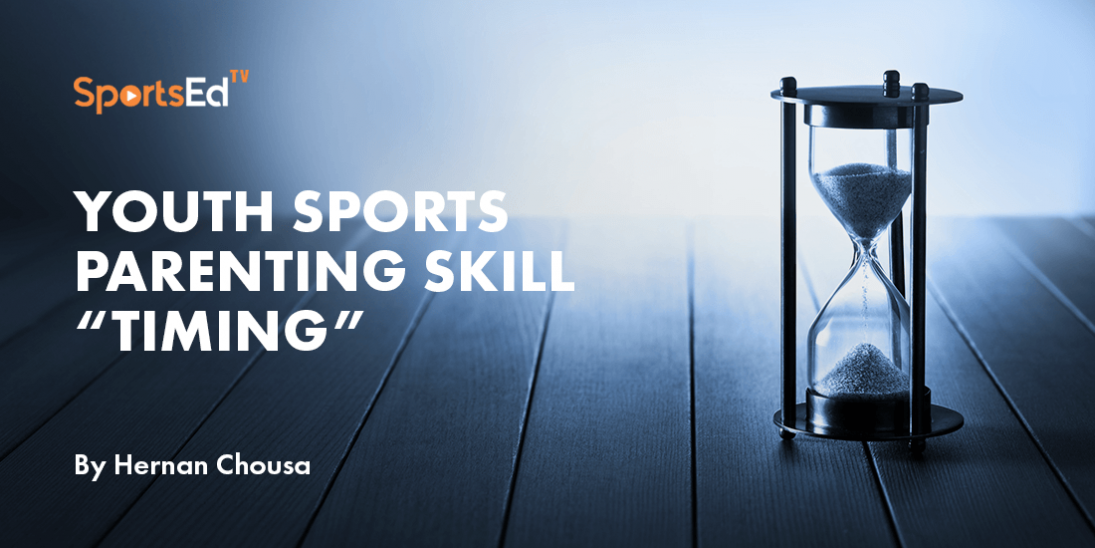Welcome and thanks for visiting...

Addressing Overzealous Sports Parents: A Necessary Approach

To see this video, you must be a member. Membership options:
Free - newsletter, video & blog access,
earn

Yearly - full access & member features
earn 5x

US$179 - may be lower outside US
Lifetime - same as yearly, but forever
earn 10x

US$350 - may be lower outside US
earn

Yearly - full access & member features
earn 5x

US$179 - may be lower outside US
Lifetime - same as yearly, but forever
earn 10x

US$350 - may be lower outside US
MySportsEdTV is a community where people share their passion for sports. It’s a place where athletes, coaches and parents can share information and share experiences. It’s a place to make new friends across the globe. Members have access to great features unavailable to non-members. Members receive helpful information via our FREE email newsletters. We always respect your privacy and your data will not be sold or shared
To use this function, you must be a full member. Membership options:
Free - newsletter, all video & blog access
Yearly - full access & member features
US$179 - may be lower outside US
Lifetime - same as yearly, but forever
US$350 - may be lower outside US
You may also use a promo code for payment
Yearly - full access & member features
US$179 - may be lower outside US
Lifetime - same as yearly, but forever
US$350 - may be lower outside US
You may also use a promo code for payment
MYSportsEdTV is a community where athletes, coaches and parents connect and share their sport passion. We don’t sell our member data or send spam. Members will receive our FREE email newsletter to alert you about new video and blog content for the sports you follow.
To use this function, you must be a paid member. Membership options:
Free - newsletter, all video & blog access
Yearly - full access & member features
US$179 - may be lower outside US
Lifetime - same as yearly, but forever
US$350 - may be lower outside US
You may also use a promo code for payment
Yearly - full access & member features
US$179 - may be lower outside US
Lifetime - same as yearly, but forever
US$350 - may be lower outside US
You may also use a promo code for payment
MYSportsEdTV is a community where athletes, coaches and parents connect and share their sport passion. We don’t sell our member data or send spam. Members will receive our FREE email newsletter to alert you about new video and blog content for the sports you follow.
Witnessing a father reprimanding his son for not winning gold instead of silver in a soccer tournament underscores the extremity of parental obsession with youth sports. While rooted in a desire for excellence, this behavior often harms more than helps.
Key issues in youth sports today include:
Early sports involvement, at ages 4-5, introduces excessive structure and competitive focus, negatively impacting children's development. This trend has grown since the late '70s, reflecting a shift in parental priorities and financial capabilities.
The "trophy child syndrome," prevalent among parents, creates unrealistic expectations. This obsession with winning and excelling in every field, from academics to extracurriculars, puts unnecessary pressure on children.

Inexperienced coaching staff, often former athletes lacking an educational background in child psychology or parental management, exacerbates the issue.
Parents' consumerist approach towards their child's sports involvement demands visible returns on investment, like starting positions or scholarships, despite these being rare outcomes.
The transformation of youth sports is irreversible. To understand these changes, Tom Farrey's "Game On" and John O’Sullivan’s "Changing the Game" offer insightful perspectives.
To combat these issues, we suggest:
Reinforcing to all stakeholders that youth sports should prioritize children's well-being.
Acknowledging children's primary reasons for playing sports: enjoyment, socializing, skill acquisition, and self-worth.
Advocating for unstructured playtime for children aged 3-6, free from adult-led activities or rules.
Educating parents through various means:
-
- Utilizing Kahlil Gibran's parenting metaphor in his book "The Prophet," he emphasizes the role of parents in guiding but not controlling their children's paths.
- Heeding Martin Gipson's advice on parenting through adolescence, focusing on instilling and refining core values in children.
- Teaching life skills to children, such as empathy, hard work, patience, and community contribution, rather than fostering entitlement.
Promoting a lifelong appreciation for sports, considering that the vast majority of youth athletes will not play at the collegiate level. Encourage skills useful for both recreational and competitive contexts.
Involving parents in the educational process within sports clubs and schools through pre-season meetings, coaching philosophy dissemination, and establishing clear communication protocols for athlete-parent-coach interactions.
Terry Liskevych retired in 2016 as the head women’s coach at Oregon State and is one of the founders of The Art of Coaching Volleyball. He coached the U.S. women’s national team at three Olympics, including 1992 when they won a bronze medal in Barcelona.






